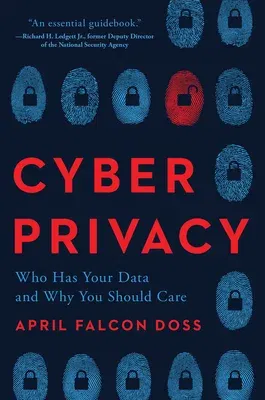2020 Foreword Indie Award Winner (Gold) in the Science & Technology
Category
Chilling, eye-opening, and timely, Cyber Privacy makes a strong case
for the urgent need to reform the laws and policies that protect our
personal data. If your reaction to that statement is to shrug your
shoulders, think again. As April Falcon Doss expertly explains, data
tracking is a real problem that affects every single one of us on a
daily basis.
--General Michael V. Hayden, USAF, Ret., former Director of CIA and
NSA and former Principal Deputy Director of National Intelligence
You're being tracked.
Amazon, Google, Facebook, governments. No matter who we are or where we
go, someone is collecting our data: to profile us, target us, assess us;
to predict our behavior and analyze our attitudes; to influence the
things we do and buy--even to impact our vote.
If this makes you uneasy, it should.
We live in an era of unprecedented data aggregation, and it's never been
more difficult to navigate the trade-offs between individual privacy,
personal convenience, national security, and corporate profits.
Technology is evolving quickly, while laws and policies are changing
slowly.
You shouldn't have to be a privacy expert to understand what happens
to your data.
April Falcon Doss, a privacy expert and former NSA and Senate lawyer,
has seen this imbalance in action. She wants to empower individuals and
see policy catch up.
In Cyber Privacy, Doss demystifies the digital footprints we leave in
our daily lives and reveals how our data is being used--sometimes
against us--by the private sector, the government, and even our
employers and schools. She explains the trends in data science,
technology, and the law that impact our everyday privacy. She tackles
big questions: how data aggregation undermines personal autonomy, how to
measure what privacy is worth, and how society can benefit from big data
while managing its risks and being clear-eyed about its cost.
It's high time to rethink notions of privacy and what, if anything,
limits the power of those who are constantly watching, listening, and
learning about us.
This book is for readers who want answers to three questions: Who has
your data? Why should you care? And most important, what can you do
about it?

